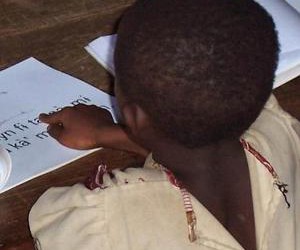Mother tongue-based education is not a panacea for South Africa’s education-related ills. However, moving beyond English and Afrikaans as the languages of learning and teaching is indeed possible and desirable. Not only should it be an option but it is an obligation of the state. It will also help to ensure that the country showcases the true potential of all its learners.
This is the conclusion of a briefing paper prepared by the parliamentary liaison office of the Southern African Catholic Bishops’ Conference.
Calling for strong political will to “translate the lip-service they tend to give to the nine indigenous official languages into practical programmes”, there is some sharp criticism of not only central government but also, by implication the Democratic Alliance’s (DA) administration in the Western Cape.
The paper states that it is “a sad indictment on the state that it had to be forced, by an order of the court, to uphold Section 6 of the Constitution by ensuring that it recognises all eleven official languages when communicating government business”.
It, however, also laments the fact the Western Cape Education department’s Language Transformation Plan, introduced in 2006 and which showed promising results, was scrapped by the subsequent DA provincial administration.
The plan encouraged the use of mother tongue-based education for the first six years, and that all learners should by grade nine have learnt an African language other than Afrikaans. Assessments would also be done in the mother tongue. It was piloted at six schools across the province and isiXhosa mother tongue speakers showed a significant increase in test results for content subjects and mathematics.
When the project was halted the schools were informed that they may no longer write their Annual Assessments in isiXhosa. Studies across the country found that where the learners take the test in their home language, and where the home language was the same as the language of learning and teaching (LoLT), their scores were on average 25% higher than those learners for whom the LoLT was different from their home language.
“If the benefits of mother tongue-based education – even if it is only for the first six years – is so well documented, why is the an inability or reluctance on the part of the state to implement a programme, such as the proposed by (minister) Pandor in 2006,” the paper asked.
Three reasons are identified:
- The perception amongst parents that being proficient in English (and to a lesser extent, in Afrikaans) is the key to unlock the doors to jobs, to a university degree, and to live outside the townships;
- The lack of African language teaching resources and teaching capacity; and
- The lack of political will.
The paper notes that parliament finally adopted the ‘language bill’ in August of this year that promotes the equitable use of all the official languages.
“It is hoped that, as a positive spin-off from the bill, the government will be willing to implement those interventions that have been shown to be successful, such as the Western Cape Education Department’s Language Transformation Plan,” the paper states.
In it’s conclusion it also notes that developing the necessary teaching resources and human resources is key, “and finding the political will is the catalyst that will ensure all South Africans will be proud to express themselves in the tongue they first heard at their mother’s knee”.






